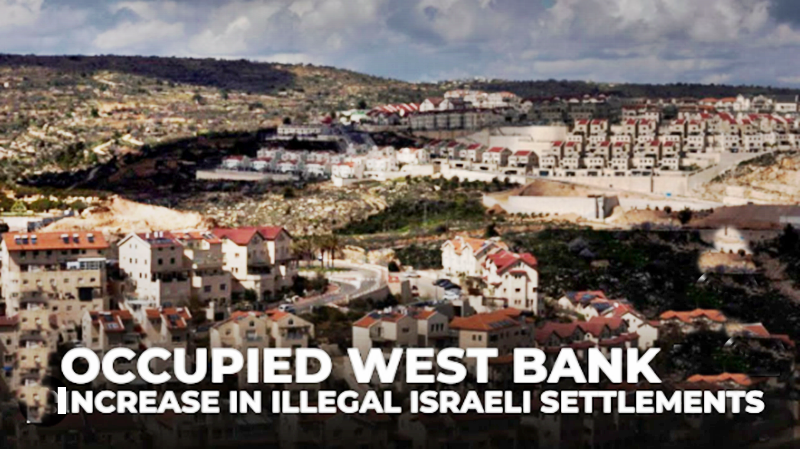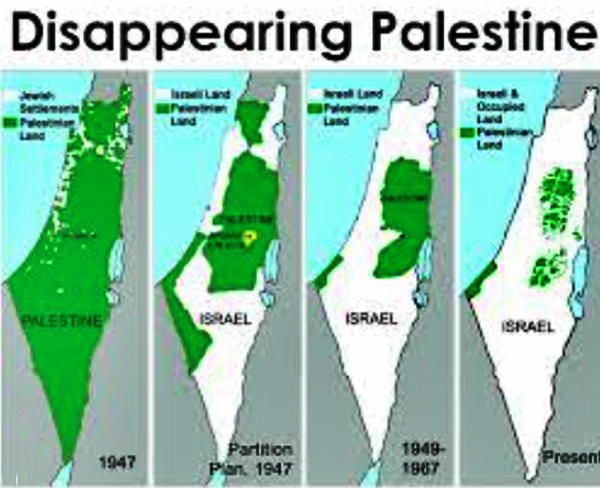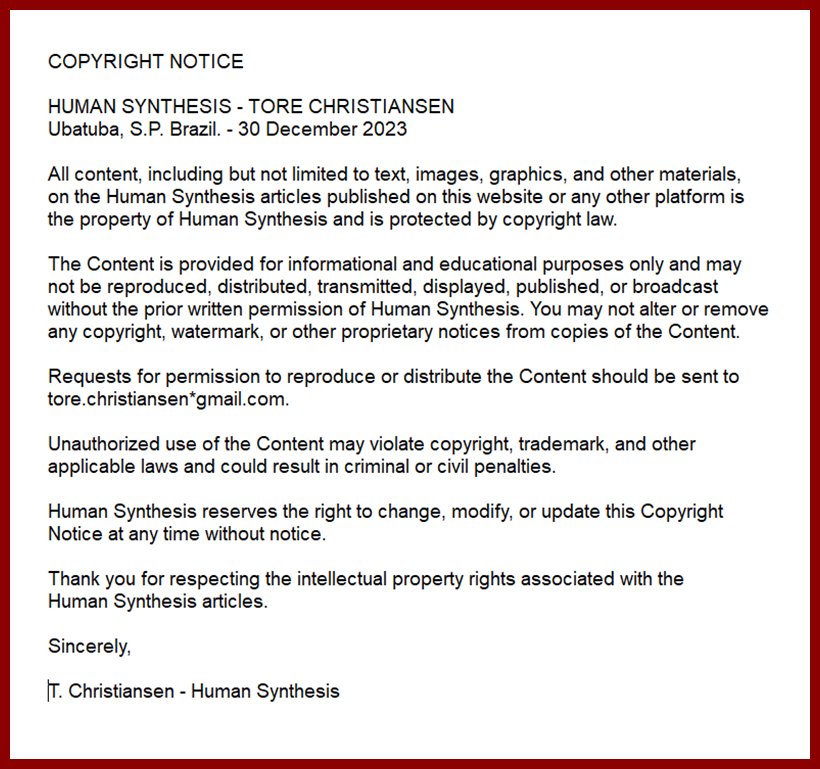The US administration needs to stop Israeli settlements in Gaza

By Guardian - Jo-Ann Mort - Sat 27 Jul 2024
Under Benjamin Netanyahu’s government, there has been an open spigot for the settlements. This needs to end NOW.
There are two wars going on between Israelis and the Palestinians. The one with the global spotlight is of course between Israel and Hamas raging in Gaza. But, there is a second, longterm, lethal war – as Israel continues to hold on to the occupation of Palestinians in the West Bank.
No mention was made of this second war in his preening speech to the US Congress by Benjamin Netanyahu, the Israeli prime minister, but it is an ongoing battle that will determine the future of Israeli democracy along with the future of the Palestinian people.
What impact could the latest ICJ ruling on Israel have? (video)
It’s unlikely that this topic was discussed in the recent meetings that Netanyahu had with Joe Biden and with Kamala Harris. It’s understandable – their agenda was full, as they demanded that Netanyahu agree to wind down the war and accept the hostage return proposal and ceasefire the Biden team has been shepherding.
But, Gaza, as urgent as it is, is only half the equation. For the US president – and his foreign policy legacy – and for the vice-president’s ability to see to fruition her strong commitment to a two-state solution, the growth of West Bank settlements and the ironclad control that the settlement movement has in that land mass can’t be ignored. Time is of the essence.
A genocidal war criminal will address Congress. As a congressman, I’m outraged. Today’s Israeli government is controlled by politicians who are settler leaders. Netanyahu is a prisoner of extremist ministers. Itamar Ben-Gvir is in charge of homeland security, including the police, and Bezalel Smotrich, the finance minister, now also controls the West Bank civil administration that oversees the planning apparatus for the settlements. Without the approval of these hard core fanatics, Netanyahu’s government will fall, giving them immense power, which they brilliantly maneuver.
Israel has occupied the West Bank and East Jerusalem since 1967. According to the 1993 Oslo Agreement, neither side, Israeli or Palestinian, could create “facts” on the ground to undermine a final status – ie, two-state – option. But Israel has massively expanded settlements, shattering the spirit of that agreement.

The Oslo Accords divided the area into three administrative sectors labeled A, B and C. The Palestinian Authority fully controls Area A (18% of the land), administers only civil matters in Area B (22%), while Israel maintains full control of Area C (60%). Area C is also the area that Israel will need to trade (along with the Gaza Strip) to the Palestinians for them to establish a viable independent state. Without viable land available – and with militant settlers living on the land – a peaceful resolution looks farther and farther away.
According to the US Department of State, there are about 3 million Palestinians living in the Occupied Palestinian Territories, and among them, around 500,000 Jewish settlers. There are an additional 230,000 Israeli Jews either living in East Jerusalem neighborhoods built after 1967, like Gilo and Ramot, or living among the 360,000 Palestinians in Palestinian sections of East Jerusalem that were previously villages on the West Bank. East Jerusalem Palestinians have no national status, though they have the ability (which almost none exercise) to vote in Jerusalem municipal elections.
Under the Netanyahu government, there has been an open spigot for the settlements – at the profound expense of needs inside of Israel in education, social welfare and especially rebuilding of the burnt and destroyed kibbutzim and communities in Israel’s south that were attacked by Hamas on 7 October.
Peace Now, an Israeli NGO, published a report on 4 July charting new 5,295 housing units in dozens of settlements throughout the West Bank. “The building plans include the expansion of settlements deep within the West Bank and the legalization of three outposts”, in addition to five outposts approved by the Israeli Cabinet in early July. (I serve on the board of the US support group for Peace Now, Americans for Peace Now).
Further, at least 25 new outposts have been established and dozens of roads, estimated to stretch tens of kilometers, have been constructed. Additionally, 24,193 dunams (about 6,000 acres) were declared as “state land”, and plans for 8,721 housing units have been promoted.
The population in these settlements is messianic and militant. They believe they are living in land given to them by God, even if it has been bequeathed to them by mere mortals.
Recently, at a meeting led by Smotrich, his bragging was recorded, unbeknownst to him, by a Peace Now staff member and was later released to the media. He talked about the money flow he was enabling to build new roads in the West Bank, a necessity for new settlements. When I drove through there this July, I saw evidence of his handiwork – not only new roads already built, but also new roads being dug, gravel being bulldozed.
The Netanyhau government has doubled the budget for the Ministry of Settlements and increased funds for the Settlement Division. This includes 7bn shekels ($1.9bn) for roads and 409m shekels ($111m) allocated for special projects in settlements despite a broad budget cut in other sectors. Meanwhile, hundreds of roads to Palestinian villages have been closed, access to tens of thousands of dunams of land has been denied and 1,205 Palestinian structures have been demolished.
As I drove around the entirety of Area C – all the way from East Jerusalem into the Jordan Valley, I saw new roadblocks being installed as large cement blocks were hauled in. Settlers are sophisticated and determined. Their strategies are both modern and ancient. They use drones to fly over the farmlands and frighten Palestinian farmers’ animals. And they also employ their own animals – plopping sheep herds in the middle of a valley or on a hill to split Palestinian farmland. They grow new settlements by claiming “natural growth”, or what they label “new neighborhoods” in existing settlements, but the reality is that once you jump a hill on the hilly terrain, you have already established a new settlement.
And the settlers are policing their own. Especially since 7 October, with increased military presence on the West Bank, reserve soldiers often live in the very settlements and areas in the West Bank that they are supposed to be policing.
A 57-year occupation is not a temporary hold. When the the international court of ustice (ICJ) ruled recently that there is apartheid in the West Bank and an illegal occupation, it was correct. It is also important to note that this ruling clarified that Israel itself is not an apartheid state. It is the occupation that has created a profoundly unequal, inhumane situation.
Even before the ICJ ruling (which the Biden administration is currently on record opposing as too broad), the US, EU, UK, and Canada have imposed financial restrictions on settler leaders. But, there is much more to be done. The US should consider direct restrictions on both Ben-Gvir and Smotrich, as well as on the Amana organization, which is the powerful building and construction arm of the settlement project.
While my recent visit to the Occupied Palestinian Territories was eye-opening, the grave reality in the West Bank has been obvious to me for the decades that I have traveled back and forth there. This reality is a direct and pressing threat not only to the future of a Palestinian state, to the daily life of the Palestinian people but to the notion that Israel can and must be a democracy, a democracy that thrives on humanitarian and universal values. The Biden-Harris administration must act forcefully and boldly to change this reality.
- Jo-Ann Mort is co-author of Our Hearts Invented a Place: Can Kibbutzim Survive in Today’s Israel? She writes frequently about Israel for US, UK and Israeli publications.
